A) Lose Weight Nutrition Plan: A Blueprint for Sustainable Weight Management

Achieving a healthy weight is a journey, not a destination. It’s about adopting a sustainable lifestyle that incorporates a balanced diet, regular physical activity, and healthy habits. This article focuses on the cornerstone of this journey: a weight-loss nutrition plan. We’ll delve into key elements based on reputable sources like the Mayo Clinic and the National Heart, Lung, and Blood Institute (NHLBI), and provide practical strategies and resources to jumpstart your success.
Key Elements of a Lose Weight Nutrition Plan: Embrace the Power of a Balanced Diet
The foundation of any weight-loss plan is a balanced diet rich in a variety of nutrient-dense foods. These foods provide essential vitamins, minerals, and energy to fuel your body without packing on excess calories. Think fruits, vegetables bursting with color, whole grains packed with fiber, lean protein sources that keep you satiated, and healthy fats that support cell function. Let go of processed foods, sugary drinks, and refined carbohydrates that offer little nutritional value and can contribute to weight gain.
Calorie Management: The Science Behind Weight Loss
Understanding your calorie needs is crucial. Calories are units of energy your body uses to function. Consuming fewer calories than your body burns creates a caloric deficit, which leads to weight loss. However, it’s important to find the right balance. Restricting calories too drastically can be counterproductive, leading to muscle loss, and fatigue, and hindering your metabolism.
Here’s where the science comes in. According to the NHLBI, a daily deficit of 500-750 calories can result in a safe weight loss of 1-1.5 pounds per week.
There are several online calculators that can help you estimate your daily calorie needs based on factors like age, sex, weight, height, and activity level. Consulting a registered dietitian can offer personalized guidance on creating a safe and effective calorie deficit plan.
Portion Control: Your Ally in Weight Management

Portion sizes play a significant role in managing calorie intake. Studies published in the Journal of the American Dietetic Association have shown that people tend to underestimate portion sizes, leading to overconsumption. Here’s how you can master portion control:
Measure and Track: Use measuring cups and spoons to portion out food initially. This helps you visualize proper serving sizes.
Downsize Your Plates: Opt for smaller plates, which can create the illusion of a larger serving and promote mindful eating.
Listen to Your Body: Eat slowly, savoring each bite. Pay attention to your hunger cues and stop eating when you feel comfortably full, not stuffed.
Fuel Your Body Throughout the Day
Skipping meals can backfire. Eating regular meals and healthy snacks keeps your metabolism fired up and prevents uncontrolled hunger pangs that lead to overeating later. Aim for 3 balanced meals and 2-3 healthy snacks spread out throughout the day.
Pro Tip: Include protein and fiber-rich foods at every meal and snack. These nutrients are known for their satiating properties, helping you feel fuller for longer and reducing cravings.
Hydration: Your Body’s Best Friend
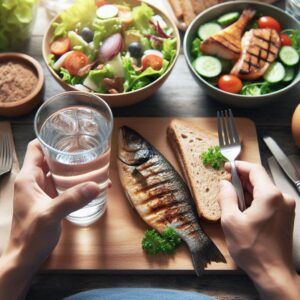
Water is essential for numerous bodily functions and can be a powerful tool for weight management. Studies published on the National Institutes of Health website suggest that drinking water before meals can promote feelings of fullness and reduce calorie intake.
Swap sugary drinks and calorie-laden beverages for water. Aim for eight glasses of water daily, adjusting based on your activity level and climate.
This article provides a foundation for creating a personalized weight-loss nutrition plan.
B) Best Nutrition Plan Lose Weight
Embarking on the journey to lose weight can be challenging, but adopting the best nutrition plan is crucial for success. A well-balanced diet rich in essential nutrients, coupled with effective portion control, can significantly boost your weight loss efforts. Including a variety of nutrient-dense foods such as fruits, vegetables, whole grains, lean proteins, and healthy fats not only supports weight loss but also ensures that your body receives the vital nutrients it needs for optimal health. Reducing the intake of refined sugars, unhealthy fats, and processed foods is essential in maintaining a healthy diet that promotes weight loss.
Understanding and managing caloric intake is another critical component of the best nutrition plan to lose weight. To create a caloric deficit, which is necessary for weight loss, you must consume fewer calories than your body expends. This can be achieved by carefully monitoring your daily caloric intake and making informed food choices. Incorporating low-calorie, high-fiber foods such as vegetables and fruits can help you feel full longer, reducing the likelihood of overeating.
Additionally, incorporating protein-rich foods can help maintain muscle mass during weight loss, which is essential for a healthy metabolism.
Hydration also plays a vital role in the best nutrition plan to lose weight. Drinking plenty of water throughout the day can aid in appetite control and prevent unnecessary snacking. Substituting high-calorie beverages with water cuts down on empty calories and supports overall health. Staying properly hydrated helps your body function optimally, making it easier to stick to your weight loss goals. By following these strategies and incorporating nutritious recipes into your meal plan, you can effectively lose weight and maintain a healthier lifestyle.
How would you like to UPGRADE YOUR BRAIN to lose weight quickly – starting today?
C) Exercise Plans Lose Weight
Incorporating effective exercise plans into your weight loss journey is crucial for achieving and maintaining a healthy weight. Regular physical activity helps burn calories, boosts your metabolism, and improves overall fitness. To maximize weight loss, combine cardio exercises, such as running, cycling, and swimming, with strength training activities like weightlifting and resistance exercises. High-Intensity Interval Training (HIIT) is particularly effective for burning fat and increasing cardiovascular fitness in a shorter amount of time. Consistency is key; aim for at least 150 minutes of moderate-intensity exercise or 75 minutes of vigorous-intensity exercise per week, as recommended by health experts.
For optimal results, customize your exercise plan to suit your fitness level and preferences. Start with achievable goals and gradually increase the intensity and duration of your workouts. Incorporating variety in your routine helps prevent boredom and keeps your body challenged.
Consider activities like yoga or Pilates to enhance flexibility and reduce stress, which can support weight loss by lowering cortisol levels. Tracking your progress and staying motivated with the help of fitness apps or a workout buddy can also enhance your commitment to your exercise plan. By combining a balanced diet with a well-rounded exercise regimen, you can effectively lose weight and improve your overall health.
D) Nutrition Plan Lose Weight Women

Creating an effective nutrition plan for women to lose weight involves understanding the unique dietary needs and lifestyle factors that contribute to successful weight loss. Women often require a different approach to weight management due to hormonal variations, metabolic differences, and varying levels of physical activity. To achieve sustainable weight loss, it is essential to focus on a balanced diet rich in nutrient-dense foods such as lean proteins, whole grains, fruits, and vegetables.
Incorporating healthy fats from sources like avocados, nuts, and olive oil can also support overall health and satiety. Managing caloric intake is crucial; women should aim to create a slight caloric deficit by consuming fewer calories than they burn, without sacrificing essential nutrients.
Portion control and regular meal timing are key components of a successful weight loss nutrition plan for women. Eating smaller, frequent meals throughout the day helps maintain energy levels and prevents excessive hunger that can lead to overeating. Hydration is another important factor; drinking plenty of water can aid in appetite control and support metabolic processes.
Additionally, it is beneficial to limit the intake of refined sugars and processed foods, which can contribute to weight gain and hinder progress. By following these guidelines and incorporating healthy, delicious recipes, women can achieve their weight loss goals while maintaining a balanced and nutritious diet.
Remember, weight loss is a marathon, not a sprint. Be patient, celebrate your non-scale victories (improved energy, better sleep), and focus on building sustainable healthy habits. With knowledge, planning, and the right resources, you can achieve and maintain a healthy weight for a lifetime!
References
1. Mayo Clinic Diet: https://www.mayoclinic.org/healthy-lifestyle/weight-loss/in-depth/mayo-clinic-diet/art-20045460
2. National Heart, Lung, and Blood Institute (NHLBI) on Calories: https://www.nhlbi.nih.gov/health/educational/lose_wt/eat/calories.htm
E) Real-World Success: 10 Weight-Loss-Friendly Recipes to Get You Started
Avocado-Egg Toast
https://www.eatingwell.com/recipe/267169/avocado-egg-toast/
Chicken & Broccoli Stir-Fry with Ginger & Basil
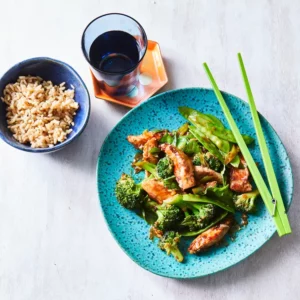
https://www.eatingwell.com/recipe/7901711/chicken-broccoli-stir-fry-with-ginger-basil/
Lemon-Garlic Shrimp and Vegetables
https://www.eatingwell.com/recipe/249648/lemon-garlic-shrimp-vegetables/
“Egg in a Hole” Peppers with Avocado Salsa
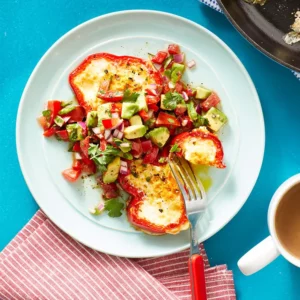
https://www.eatingwell.com/recipe/269125/egg-in-a-hole-peppers-with-avocado-salsa/
Overnight Matcha Oats with Berries
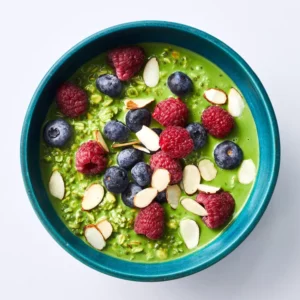
https://www.eatingwell.com/recipe/7938472/overnight-matcha-oats-with-berries/
Quinoa-Black Bean Salad
https://www.eatingwell.com/recipe/278402/mexican-quinoa-salad/
Sheet-Pan Salmon with Sweet Potatoes & Broccoli
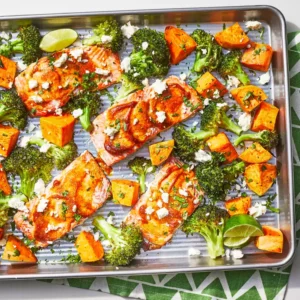
https://www.eatingwell.com/recipe/281181/sheet-pan-salmon-with-sweet-potatoes-broccoli/
Peanut Butter and Apple-Cinnamon Topped Toast
https://www.eatingwell.com/recipe/266485/peanut-butter-and-apple-cinnamon-topped-toast/
Spinach, Peanut Butter & Banana Smoothie
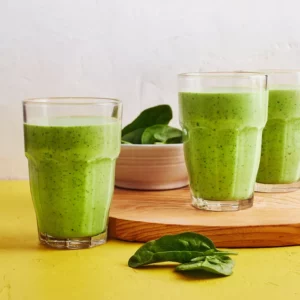
https://www.eatingwell.com/recipe/280738/spinach-peanut-butter-banana-smoothie/
Veggie & Hummus Sandwich
https://www.eatingwell.com/recipe/259817/veggie-hummus-sandwich/
Incorporating these recipes into your daily meal plan can help you achieve your weight loss goals while enjoying nutritious and delicious meals.

